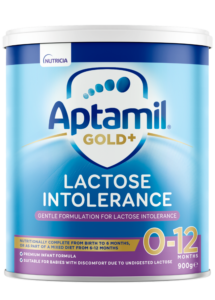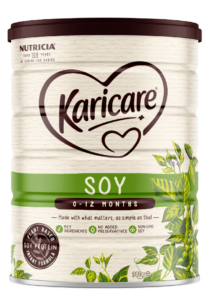Lactose Intolerance

Lactose is the primary digestible carbohydrate found in breastmilk. Healthy term infants are born with sufficient lactase enzymes which are required to digest lactose. Infants become intolerant of lactose when there is a deficiency of the lactase enzyme which is responsible for breaking down lactose into its two components, glucose and galactose, before absorption.1 Primary lactose intolerance generally does not manifest in children before 5 years of age.2 Lactose intolerance in young children is generally linked to underlying gut conditions such as viral gastroenteritis, coeliac disease or Crohn’s disease.2 Therefore, lactose intolerance in young children is mostly transient and improves with treatment of underlying gut pathophysiology.2Approximately 70% of the world’s population have primary lactase deficiency.2 The percentage of lactase deficiency prevalence varies according to geographical areas, ethnic groups, age and consumption of dairy products in the diet.1Different diagnostic techniques and management approaches may be utilised by the healthcare professionals during periods of lactose intolerance. Breastfeeding remains possible for the majority of lactose intolerant infants.3,4
Frequently asked questions
BREASTMILK IS BEST FOR BABIES.Professional advice should be followed before using an infant formula. Introducing partial bottle feeding could negatively affect breastfeeding. Good maternal nutrition is important for breastfeeding and reversing a decision not to breastfeed may be difficult. Infant formula should always be used as directed. Proper use of an infant formula is important to the health of the infant. Social and financial implications should be considered when selecting a method of feeding.
References
- Ugidos-Rodriguez et al. Food Funct. 2018;9:4056-4068.
- Heine et al. World Allergy Org. 2017;10:41.
- Br J Gen Pract. 2016;66:e609-11.
- Asia Pac J Clin Nutr. 2015;24:S9-S13.
- Corgneau et al. Crit Rev Food Sci Nutr. 2017;57:3344-3356.
- De Koker et al. J Fam Health Care. 2014;24:14-20.
FOR HEALTHCARE PROFESSIONALS ONLY





